Innovation nation: Startmate wants hi-tech start-ups to drive the future of our economy
These tech superstars have worked with over 150 start-ups with a collective portfolio value of more than $1 billion, and they’re only just getting started.

For anyone thinking Australia is lacking a vision, just talk to Startmate’s Lauren, Michael, Sophia or Sascha.
They have a vision.
■ READ THE LIST: 100 Innovators 2021
Startmate, the nationwide start-up accelerator program founded by Niki Scevak with support from tech luminaries – including Atlassian co-founders Mike Cannon-Brookes and Scott Farquhar – has unveiled an ambitious set of goals for making Australia and New Zealand the first economies in the world where startups generate the majority of GDP.
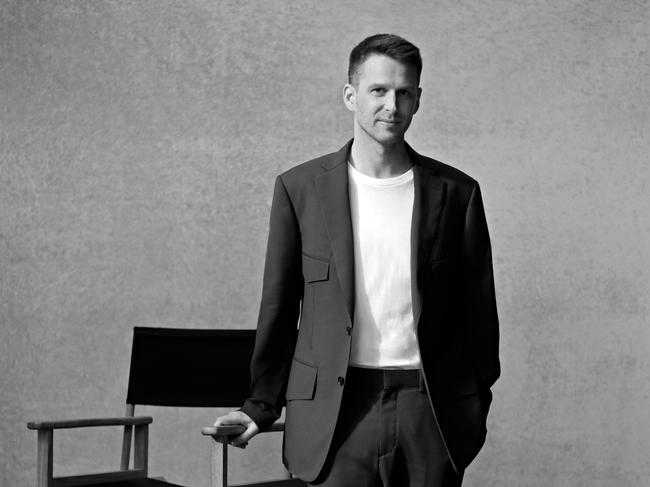
Long reliant on 100-year-old companies that dig stuff out of the ground, and the sheer financial might of our Big Four banks, Australia can – and should – begin to chart a different path, if you listen to these four optimistic leaders.
The executives have exclusively revealed their 10-year master plan that they say will set up our nation for the next decade.
Startmate has just capped its first 10 years of operations. Following on from the likes of Australian high-profile tech successes like Atlassian and Aconex – which between them have employed thousands of Australians and are worth billions of dollars – its focus is on finding the next generation of entrepreneurs and companies, and setting them up to succeed. To date, Startmate has invested and worked with more than 150 start-ups, which now have a collective portfolio value of more than a billion dollars.
It is now setting its sights on the next 10 years.
Startmate’s chief executive Michael Batko has spent most of his career working inside fast-growing start-ups, having worked at freelancing tech company Expert360 and online pet marketplace Mad Paws. In a wide-ranging interview Batko says that Startmate has ambitions to build a one million-person Startmate City which will stir activity across the region and serve as the platform for rapid innovation in Australia.
The 10-year blueprint sets out to not only accelerate the maturation of the region’s start-up and venture capital ecosystem, Batko says, but also to foster a problem-solving, ambitious mentality – supported by new pathways to education and leadership – that he thinks has the potential to transform Australia and New Zealand’s place on the economic world stage.
And he’s not waiting around for someone else to do the heavy lifting.
“We know this sounds crazy,” he says. “But we want to create a place for tens and hundreds of thousands of people to come together with shared values, beliefs and ultimately culture to pursue their dreams.
“When Startmate started in 2010, there was almost no venture capital in Australia. Paradoxically, this was just as the start-up ecosystem was starting to succeed, with some big winners like Atlassian, Aconex and Campaign Monitor beginning to emerge.
“Start-ups had to turn to the US for capital and direction.”
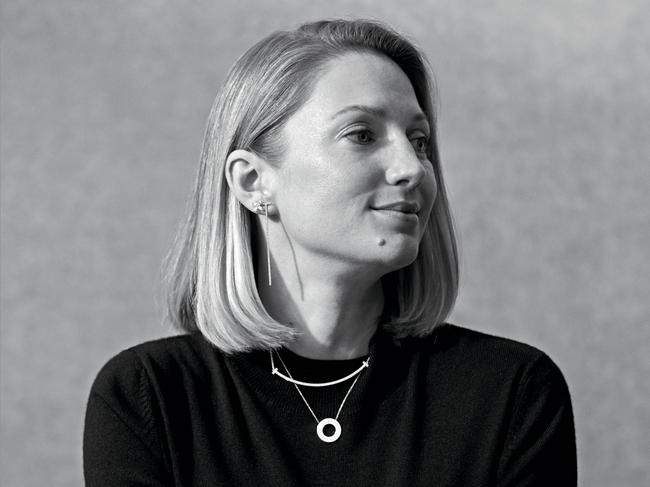
Batko says that over the past decade, the Australian and New Zealand start-up scene has matured, but deeply ingrained structural problems remain.
“Government is incentivised to maintain the status quo off the back of the 30-year real estate and mining boom. Education is still a one-size-fits-all model that trains future generations to be a cog in the wheel of the old economy – mining, banking and law. Senior leadership teams around the country remain a boys’ club.
“We exist to challenge all that.”
Startmate’s beginnings date back to 2011, when founder Scevak teamed with the first cohort of 26 founding mentors, including Atlassian co-founders Mike Cannon-Brookes and Scott Farquhar, who each invested $10,000 of their own money into a micro fund to support small start-ups.
Cannon-Brookes, who is currently Australia’s third richest person according to The List, has fond memories of working with Scevak a decade ago on what was then a modest incubator program.
He started Atlassian as a university dropout with $10,000 in credit card debt, and co-founded Startmate to give other entrepreneurs a similar kickstart to get to where they need to be.
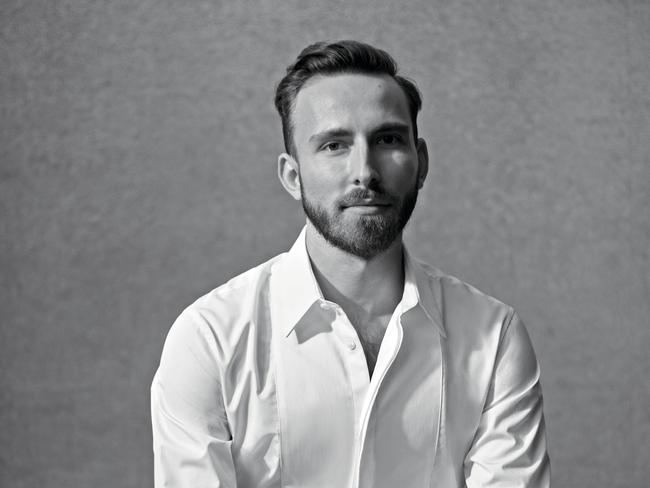
Australia has gone from being somewhat of an innovation backwater to one of the best places in the world to start a tech company, and a chunk of that is due to what Startmate is accomplishing, according to Cannon-Brookes.
“I remember from the early days at Startmate, Niki always talked about this idea that you get one shot at putting a dent in the linear path,” Cannon-Brookes says. “He inspired founders to pursue the nonlinear path. To think big before they were big, in order to change their trajectory.
“Startmate are experts at diversifying and growing things. Their program is one of the most successful of its kind worldwide, and we’re lucky enough to have it right here in our own back yard.”
Scevak says that the central idea of Startmate is the “circle of life” – that founders who have built successful companies invest and help the next generation succeed.
“I had moved back to Sydney from America in 2010 and we had all the raw ingredients here but no one who had brought them together,” he says.
“There were already successful start-ups, but no investors focusing on them and no community to make sure the lessons learnt went from one start-up to the next. So the idea of Startmate was to bring that all together,” he says.
“One of the big early lessons from Startmate was that there wasn’t so much a capital deficit as an ambition deficit. Money comes in response to ambition and not before it. Australians were much too shy about having ambition compared to the people I had met in San Francisco or New York. But all it takes is a community of like-minded founders to quickly expunge that loser talk and then the ambition was quickly unlocked. Giving people permission to dream big and re-raising their ambition was probably the thing that Startmate did so much differently and enabled it to succeed.”
Scevak adds that the dream for Startmate is that Australia can be a home to global companies that create technology rather than a country that just consumes technology from the Facebooks and Googles of the world.
“That’s the way Australia becomes a global power and creates jobs where people can make a global impact,” he says.
Startmate is best known for its signature 12-week intensive start-up bootcamp, which takes entrepreneurs and gives them mentorship, introductions to investors, and funding.
It has more than 100 mentors on-board, with the team of mentors including Adore Beauty founder, Kate Morris; Atlassian head of engineering, Zak Islam; Vend chief product officer, Rhiannon White, and Culture Amp co-founder, Doug English. Startmate is also financially backed by family offices and venture capital outfits including SquarePeg, AirTree and Blackbird, while portfolio companies have gone on to raise funds from Silicon Valley heavyweights including Sequoia Capital, Accel, Costanoa and Y-Combinator.
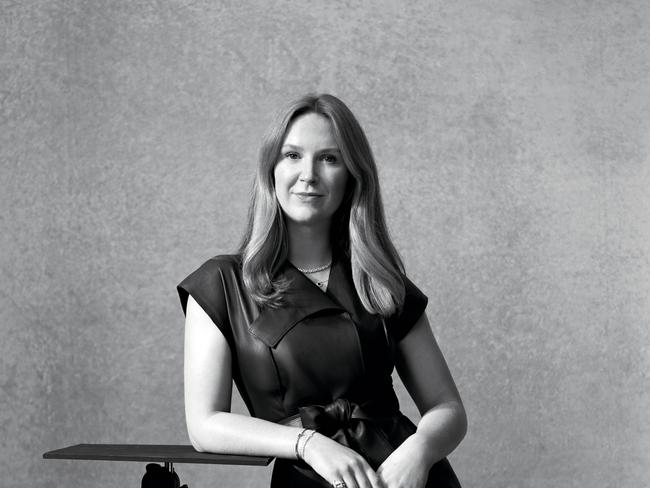
Every mentor at Startmate is personally invested in its fund, giving them skin in the game. They invest from $10,000 to $250,000 per cohort, and Startmate then also invests an extra $75,000 into every company that goes through its program, in exchange for a 7.5 per cent stake.
All of Startmate’s mentors are company founders or ex-founders – basically someone who has walked the start-up journey before.
There are three stages to the bootcamp. Around 500 to 600 companies apply per cohort, with Startmate mentors reviewing up to 40 applications each. A second round is a round robin interview program – an intense afternoon in which start-ups do 10 x 10-minute rapid fire interviews with 10 different people.
The Startmate team then chooses the top 20 to 25 companies for a last one-hour in-depth interview. Companies apply from all over Australia and New Zealand, with the most recent cohort featuring companies in Sydney, Melbourne, Perth, Brisbane, Adelaide, Auckland and Wellington.
“The process itself is specifically designed to be very fast, because we don’t want to be wasting anybody’s time, and then roughly two weeks later, we can already make an offer,” Batko says.
“Ten years ago founders had to relocate to the US to build a start-up. Now you have a great supportive ecosystem where you can build a billion-dollar company in Australia, and not have to relocate your headquarters anywhere else in the world.”
The team is also this year launching for the first time a Founders Fellowship program, a 10-week program that gives budding founders – who have not yet launched a company – the knowledge, guidance and networks they need to successfully build and grow a start-up.
Batko says the program is predominantly for people who want to leave their corporate jobs, and apply their skills to build the companies of the future.
The person might have had some founding experience in the past but also might be a banker, a consultant, a student or somebody working in the hospitality industry, he says.
“The Founders Fellowship is targeting those who want to found a company, rather than work for one, but aren’t sure what happens next,” the head of Startmate’s Accelerator program Sascha Kerbert says.
“We’re really looking for those ambitious people who have an idea that keeps them awake at night but needs someone to share the ride with, guide them through and expose them to the ingredients needed to turn the idea into reality,” he says.
That new program will sit alongside Startmate’s women-focused Fellowship program, which launched in February 2020 and is working to place 300 women into top roles with Australia and New Zealand’s leading start-ups before the end of next year.
Former Reinventure executive Lauren Capelin, who is now Startmate’s principal, says the women-focused program is currently into its fourth cohort, with 100 women ready to join a company, and 30 per cent have landed a role before the cohort has finished.
She says the Fellowship program was part of the second stage of Startmate’s master plan, which is focused on experimenting with alternative education pathways to improve diversity and end some of the problems that perennially dog local tech companies.
“If we want to build a world-class entrepreneurial ecosystem here, we need to fast track the expansion of the talent pool and widen the net of people with the ambition and talent to be superstar hires for our emerging tech companies,” Capelin says.
“Rather than recycling the existing talent through the industry, and exacerbating issues of diversity that come from leaning solely on past experience and similar social circles, we need to rapidly upskill people with different backgrounds and fresh perspectives so they can hit the ground running straight away.
“At Startmate we are focused on circumventing traditional ideas of learning curriculum and career pathways, and rejecting the notion of needing to spend both years and thousands of dollars before being considered qualified or employable. Instead we believe in reinventing the education and hiring system through peer- and mentor-driven communities who learn from each other, in partnership with industry leaders, at all levels of career development and across a range of disciplines, from engineering and marketing to strategy and investment.
“Eventually, this will span across the education timeline from high school and university to career transitions, leadership and board level appointments.”
Capelin adds that while Startmate has been previously just known for its accelerator programs, it is now taking on a larger role of being Australia’s hub for innovation and ambition.
The team is actively pursuing formal partnerships with city and state governments, and intends to found its own economic zone. In its plan it says it will “copy the best laws and institutions that foster ease of doing business, experimentation and creativity, instead of relying on archaic systems”.
Batko says Startmate is in early conversations with the NSW and Queensland governments specifically about shared values and the potential to utilise physical infrastructure. There are three phases to the Startmate City plan, with the building of infrastructure set to commence in 2023.
“The more we start talking, the more other states will start talking to us as well, because this is a no-brainer,” he says. “We have the community already, that bit is done. The next step is to get people to relocate for an entire program, for three months, to a city, and then we’ll expand to relocating the community to a physical location, getting the state involved, changing laws themselves to actually make them as tech-friendly as possible.
“This will almost be like having dual citizenship, that’s how we see it,” Capelin says. “You will have this kind of passport into the epicentre of ambition. Eventually physically, right now remotely, or it might pop up in particular physical locations. What we’re trying to say is that by having membership or participation in this community in this city, anything is possible and all those barriers to progress are unleashed and unlocked, because we’ve got every layer of the stack, participating in this really liquid network.
“We’ve already built trust across the Startmate ecosystem and we continue to expand the borders of who’s in that community. Right now it is distributed across Australia and New Zealand, and the real benefits come when you bring people back together. So from a long perspective, we see being a part of Startmate as being a resident of the city. And that will lead to the aspirational value that we’re really seeking here.”
The Startmate City concept can be compared to Silicon Valley, according to Batko, given the Valley is already well-known as a tech and start-up hub, and is a destination for anyone wanting to be surrounded by innovation.
Only around 10 per cent of all residents of the Silicon Valley area actually work in technology itself, he says, and the vast majority of the city are working on other things but still tied to what the city is trying to achieve more broadly.
“We want to create a culture that attracts all people, and not everybody necessarily has to work on the technology itself, but they feel connected to the larger mission,” he says.
Sophia Witherington, head of fellowship for Startmate, describes the current moment as a magical one for our region.
“Australia will only flourish provided we work hard to expand the talent pool in order to welcome new skills, new ideas and a greater diversity of voices into the fold,” she says.
“Right now, we’re seeing a new generation of Australian and New Zealand start-ups with more experienced leaders, greater access to growth funding and clearer pathways to success. This inflection point in the industry means that start-ups can move faster in achieving their goals, and that career pathways into tech and innovation are becoming more highly sought after.”
Kerbert agrees and says Startmate is becoming the best place across Australia and New Zealand for an aspiring founder to build a company.
He says there’s never been a better time for someone who might have thought about starting their own company to just jump in and do it.
“Driving more of the best talent into tech and innovation has always been Startmate’s ambition, and we’re currently seeing the flywheel spin as our programs support every layer of the start-up ecosystem,” he says.
“Realising this vision has long-term benefits for our region, as more of our brightest minds are diverted away from industries such as mining, and funnelled instead towards growth industries that will have positive impacts on both our economy and our planet.”
As for favourite companies to have progressed through Startmate’s accelerator program, Batko points to Swoop Aero, which went through its 2018 cohort. Swoop Aero delivers lifesaving medication via drones, and has projects across Vanuatu, the Asia Pacific region and Africa.
“They’re the world experts at what they do,” he says.
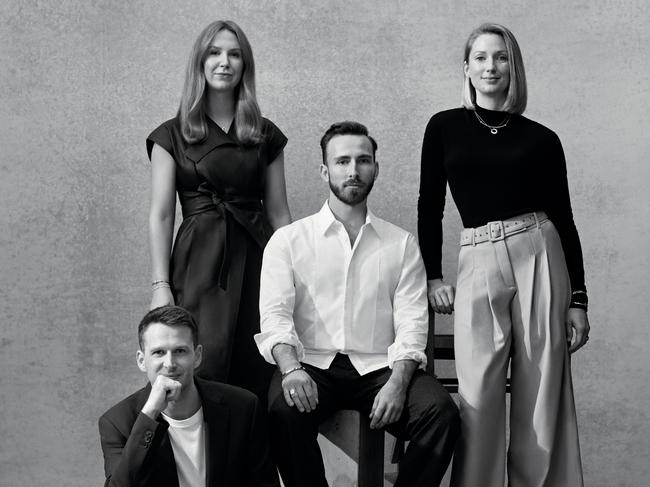
Capelin points to Heaps Normal, which produces non-alcoholic beer and uses an innovative subscription model. Other successful start-up alumni include Upguard, Bugcrowd, Propeller, Flirtey, and HappyCo.
Batko says the 10-year plan ultimately is about future-proofing Australia’s economy, and that the concept has already proven itself given the job creation coming from Australia’s start-up sector.
Looking globally, he says, the Startmate model is unique in the world. No other accelerator in the world is doing what Startmate is aiming to accomplish.
“It’s a compelling proposition,” he says.
“We have already done the hard part, and built a community of the most ambitious people.
“By making our programs for founders, operators and investors physical, we then give a reason for thousands of people to move to a start-up city. And if thousands of talented people are there, thousands more will follow.
“In 10 years’ time start-up founders will be relocating to Australia and New Zealand because there is no better place to live in a world than here, and we will have such a mature ecosystem that people will want to build start-ups here rather than anywhere else in the world.”
-
What’s one thing Australia can do right now to spur innovation?
Michael Batko, Startmate CEO
“Australia needs to update its definition of a ‘sophisticated investor’, which is a regulatory requirement to invest in start-ups. ‘Sophisticated’ – in the eyes of Australian law – just means ‘rich’, and has nothing to do with actual investment nous. Currently, that restriction is widening the gap between rich and poor, rather than levelling the playing field and promoting education.”
Lauren Capelin, Startmate Principal
“To fully leverage the impact that start-ups and entrepreneurial thinking can have on our economy, we need to both broaden the diversity of people who aspire to be start-up founders, and increase our risk tolerance for supporting founders and ideas that are not yet tried and tested. Innovation can come from anywhere, but start-up businesses need adequate time, financial resources and industry support to incubate and reach their potential.”
Sascha Kerbert, Startmate head of Accelerator
“The climate crisis is the defining challenge we collectively face and we believe some of the most valuable companies of the future will be those working to solve elements of that challenge. With our abundance of natural resources and a pipeline of some of the best talent in the world, Australia and New Zealand are in a unique position to capitalise on this opportunity. We now need a bigger vision and commitment from policymakers, investors and the broader community to help us actualise it.”
Sophia Witherington, Startmate head of Fellowship
“It is still extremely rare for a start-up to hire a graduate straight from university, and even rarer for a start-up to even consider a resume that didn’t tick the ‘start-up experience’ box. This puts the industry in a zero-sum game where start-ups only hire people from other start-ups. For innovation-focused start-ups to have a meaningful impact on our economy, we need to make it easier for ambition to take root within them. This is what we aim to do with our Fellowship programs – allow talented operators to bypass traditional education pathways in order to bring their skill and insight to burgeoning opportunities.”

To join the conversation, please log in. Don't have an account? Register
Join the conversation, you are commenting as Logout